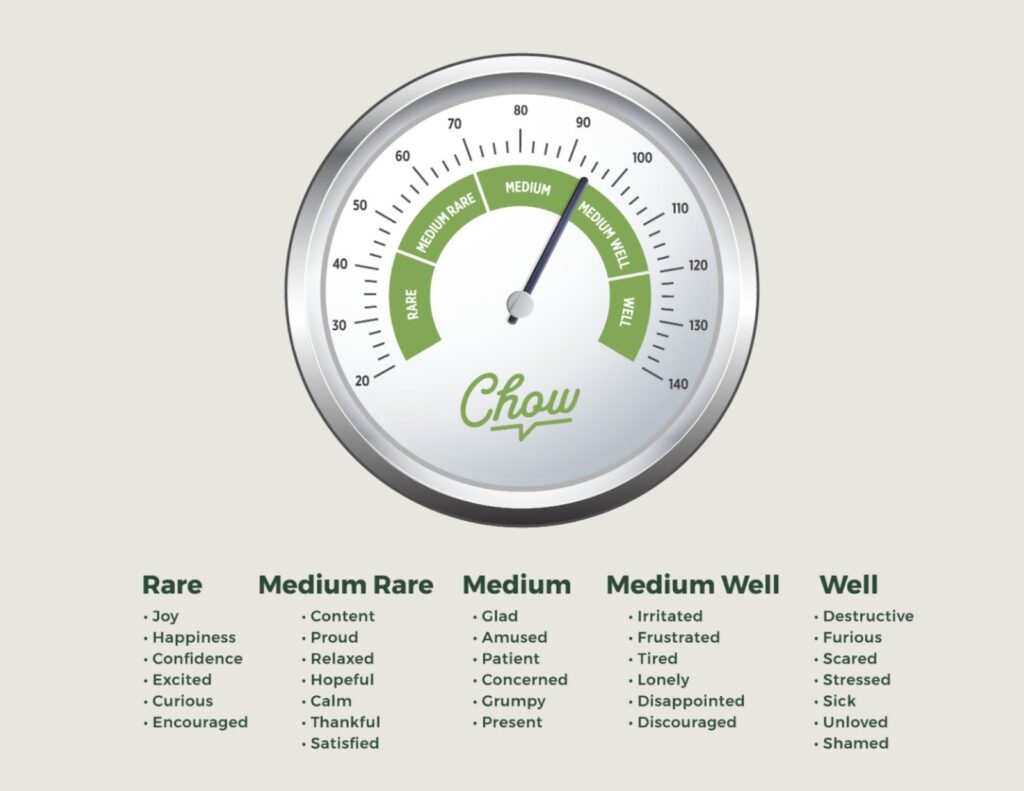Helping stressed-out employees helps them… and your business.
Ask restaurant operators to list staff health concerns, and cut fingers, oil splatter burns, sore feet, aching backs and fatigue come to mind. Mental health is often overlooked because, well, it doesn’t stick out like a sore thumb.
The daily restaurant grind is stressful enough. Worker shortages and short-tempered customers take an extra toll. Ultimately, employee mental well-being affects everyone, and addressing staff mental health can improve their lives and your business.
Working through physical pain earns rock-star praise — emergency room in the morning, back at work by afternoon. Mental health issues get whispers and sidelong glances.
“We have a stigma to overcome,” Erin Boyle said. “Mental health is just as important as physical health. If you are struggling with anxiety, depression or PTSD, that’s going to have a physical impact.”
She’s the executive director of CHOW (Culinary Hospitality Outreach and Wellness), and she has seen how mental health challenges can hurt morale, amplify conflict, create unsafe situations, increase absenteeism and cause turnover.
Daily Check-Ins, Team Support
The opposite of absenteeism is presenteeism, in which a staffer shows up but doesn’t perform effectively. It can signal mental health troubles and create stress for everyone.
Daily check-ins help managers engage with staffers. Start-of-shift or pre-meal meetings are an opportunity to ask about problems or notice changes in appearance or attitude.
“Don’t assume a happy face means a happy person,” said Sara Patterson, Gordon Food Service Canada National Human Resources Manager. “Ask the questions, ‘How are you?’ and ‘How’s your stress level?’”
Ultimately, a healthy workplace takes a village. Managers are busy. They can explain policies, procedures and ways to seek help, but they may miss early signs of mental health concerns. That’s why Boyle encourages empowering the entire team to support one another with an “if you see something, say something” mindset.
Leave Therapy to the Pros
Managers are encouraged to watch for mental health concerns, but not to be a therapist. In fact, laws prohibit managers from asking some medical and health questions. They can, however, make observations. That’s a good way to check in on employees.
“Sit them down and say, ‘You haven’t seemed to be yourself lately. Is there anything we should be doing differently?’” said Lynn Pomeroy, Gordon Food Service Human Resources Manager in Plant City, Florida. “You want to ward it off before it becomes something bigger.”
If someone’s in obvious stress, Pomeroy says you can refer them to HR or a crisis hotline. A referral or a phone call can save someone’s life.
Boyle agrees, citing advice from the I Got Your Back Project in California: “If someone discloses they are suicidal, ask them, ‘Can I call the crisis line with you?’ Do all the steps in front of them and then say to the person who answers, ‘We just want to know how this whole crisis line works.’”
This process shows care and concern, plus it opens an avenue for help if an employee struggles outside of work.
Find the Best Solution
Finding help is easy. Plenty of places, such as the Michigan Restaurant & Lodging Association, offer mental health resources online.
But mental health programs only work if your team wants it. “It would be a waste of money if all your employees want is an extra day off and a Hulu membership,” Boyle said.
If your operation has an HR department, they can explain employee assistance programs or clinical therapy options, Pomeroy said. People also can call 988, the three-digit number for the National Suicide Prevention Lifeline.
CHOW offers a list of mental health resources on its site, and Boyle also points to a checklist of wellness questions from Mental Health America that can provide regular assessments.
It adds up to improved staff health and a better bottom line. The World Health Organization explains that for every dollar spent on mental health, there is a $4 return in improved health and productivity.
This content is provided for informational purposes only and is not intended as legal, HR, or other professional advice.












